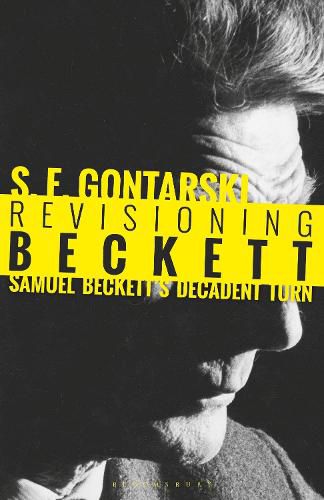Readings Newsletter
Become a Readings Member to make your shopping experience even easier.
Sign in or sign up for free!
You’re not far away from qualifying for FREE standard shipping within Australia
You’ve qualified for FREE standard shipping within Australia
The cart is loading…






Revisioning Beckett reassesses Beckett’s career and literary output, particularly his engagement with what might be called decadent modernism.
Gontarski approaches Beckett from multiple viewpoints: from his running afoul of the Irish Censorship of Publications Acts in the 1930s through the 1950s, his preoccupations to find literature in the pornography, or beneath the pornography, his battles with the Lord Chamberlain in the mid-1950s over London stagings of his first two plays, and his close professional and personal associations with publishers who celebrated the work of the demimonde. Much of that term encompasses an opening to the fullness of human experience denied in previous centuries, and much of that has been sexual or decadent. As Gontarski shows, the aesthetics that emerges from such early career encounters and associations continues to inform Beckett’s work and develops into experimental modes that upend literary models and middle-class values, an aesthetics that, furthermore, has inspired any number of visual artists to re-vision Beckett.
$9.00 standard shipping within Australia
FREE standard shipping within Australia for orders over $100.00
Express & International shipping calculated at checkout
Revisioning Beckett reassesses Beckett’s career and literary output, particularly his engagement with what might be called decadent modernism.
Gontarski approaches Beckett from multiple viewpoints: from his running afoul of the Irish Censorship of Publications Acts in the 1930s through the 1950s, his preoccupations to find literature in the pornography, or beneath the pornography, his battles with the Lord Chamberlain in the mid-1950s over London stagings of his first two plays, and his close professional and personal associations with publishers who celebrated the work of the demimonde. Much of that term encompasses an opening to the fullness of human experience denied in previous centuries, and much of that has been sexual or decadent. As Gontarski shows, the aesthetics that emerges from such early career encounters and associations continues to inform Beckett’s work and develops into experimental modes that upend literary models and middle-class values, an aesthetics that, furthermore, has inspired any number of visual artists to re-vision Beckett.